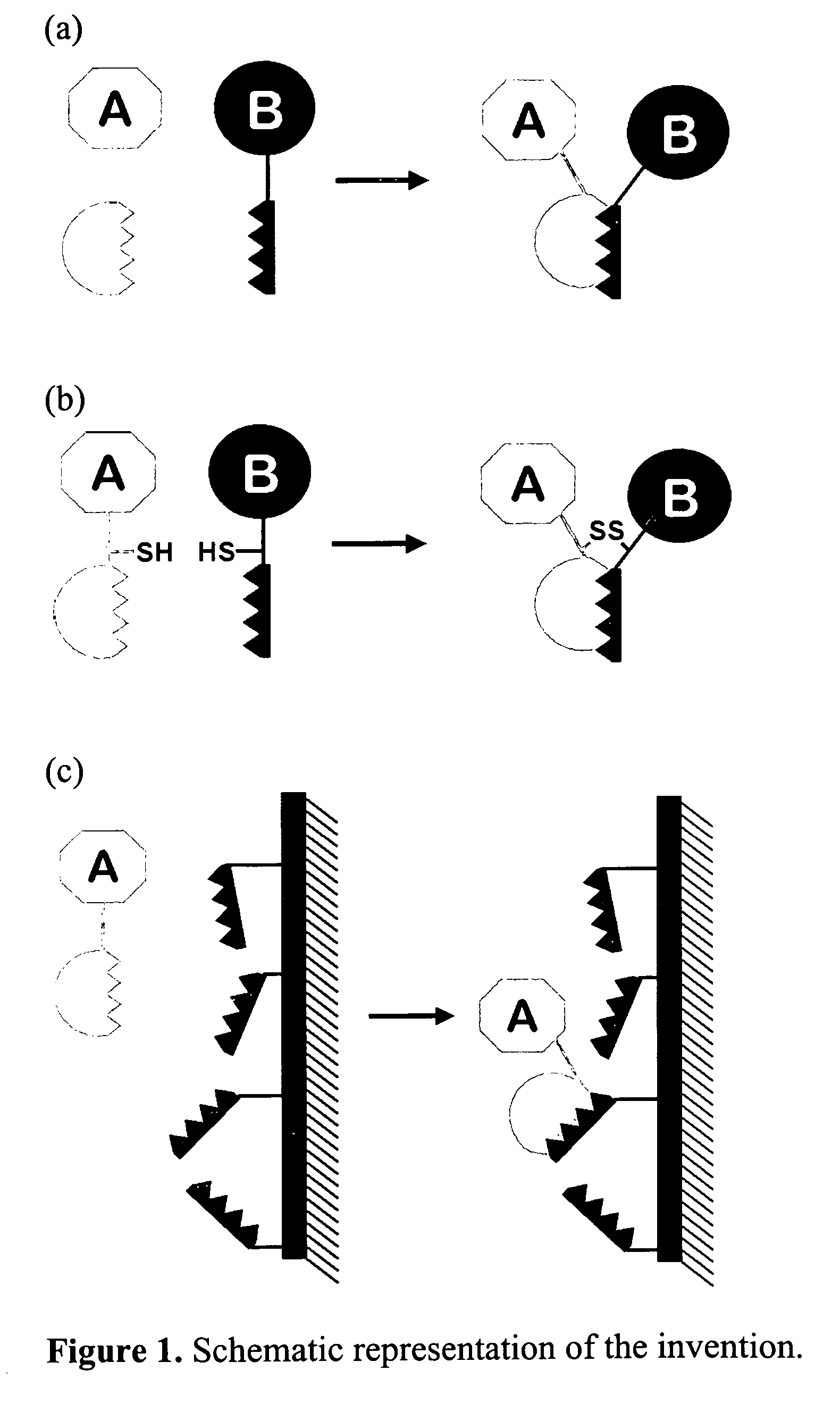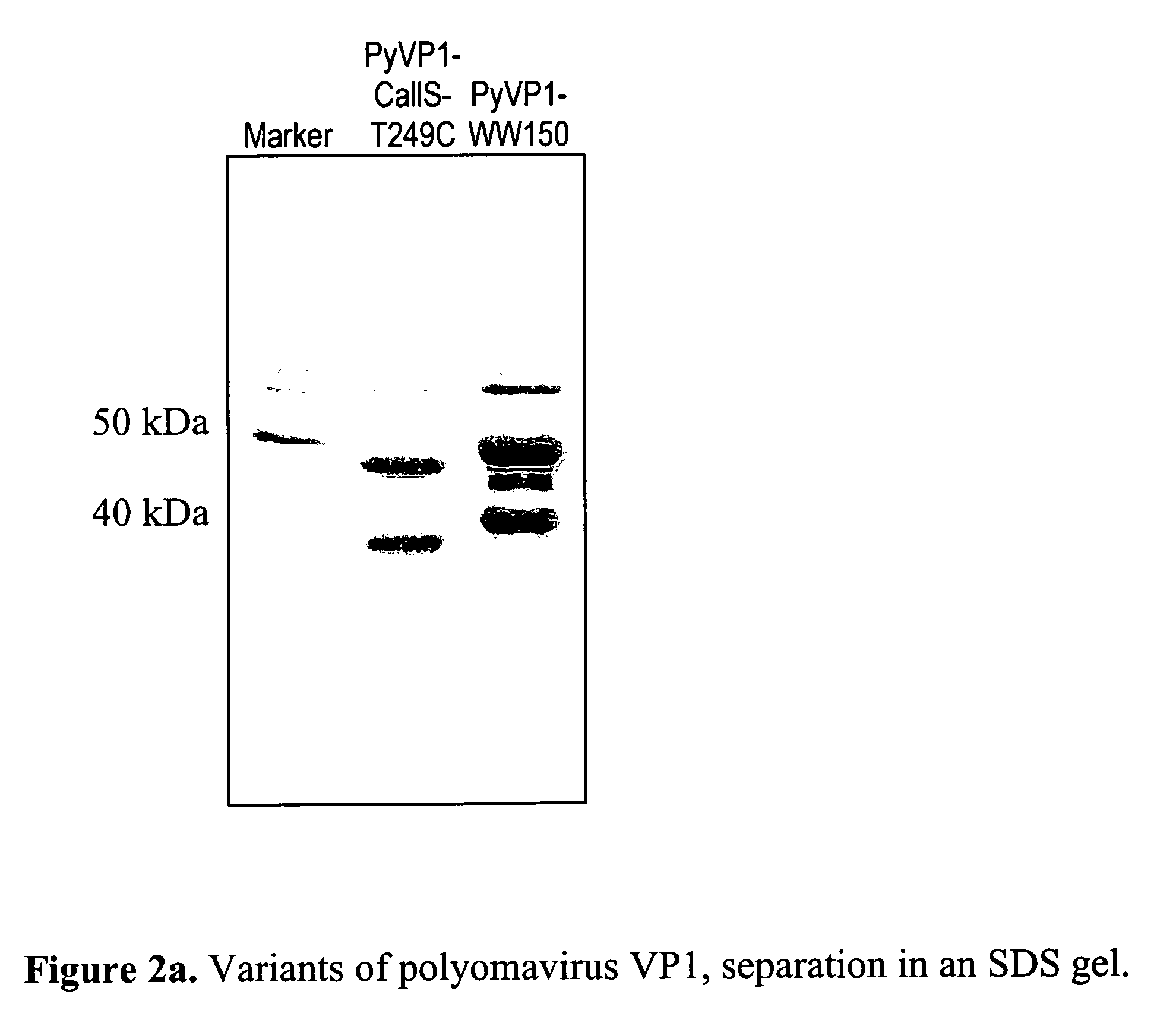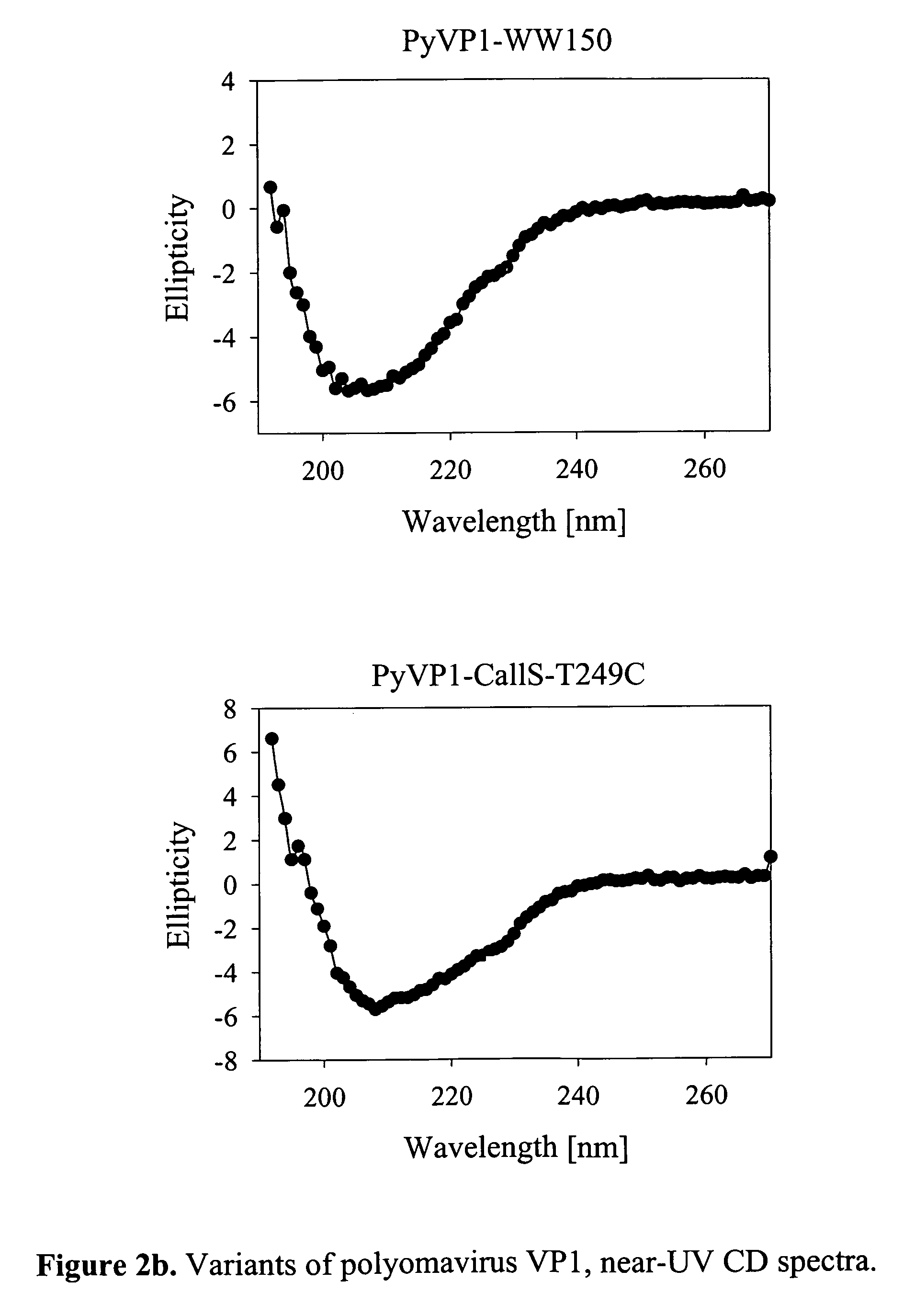Method for linking molecular substances
a molecular substance and molecular substance technology, applied in the direction of factor vii, peptide sources, pharmaceutical non-active ingredients, etc., can solve the problems of frequent interaction between two or more molecular substances and inactive products of fusion, and achieve the effect of fast production
- Summary
- Abstract
- Description
- Claims
- Application Information
AI Technical Summary
Benefits of technology
Problems solved by technology
Method used
Image
Examples
example 1
Insertion of a WW Domain in the Outer Segment of an In-Vitro Assembled, Virus-Like Protein Coat (PyVP1-WW150)
[0046]In the first example, a WW domain of the amino acid sequence Gly-Ser-Gly-Trp-Thr-Glu-His-Lys-Ser-Pro-Asp-Gly-Arg-Thr-Tyr-Tyr-Tyr-Asn-Thr-Glu-Thr-Lys-Gln-Ser-Thr-Trp-Glu-Lys-Pro-Asp-Asp (SEQ ID NO:23) is inserted in a specific loop of a viral coat protein. At the same time, a linker is additionally inserted before and after the WW domain, consisting of alternating Gly-Ser amino acids. In the given example, the employed viral core protein is the pentameric polyoma virus VP1 core protein in solution, which based on current technology, is capable of assembly in vitro into a virus-like coat. Based on the crystal structure of the protein it can be recognized that a loop region in the structure near to amino acid position 150 is possibly suitable for the insertion of the WW domain, since this loop region is found on the outside of the coat when assembly of the pentamer protein...
example 2
Characterization of the Properties of PyVP1-WW150
[0057]By means of example 1, a protein (PyVP1-WW150) can be produced which artificially has a WW domain inserted. The binding qualities of PyVP1-WW150 in relation to proline-rich ligands can be characterized with various processes. An advantageous method for this is provided by surface plasmon resonance; in the given example, the instrument Biacore X (Biacore AB) is used. A synthetic peptide of the sequence Cys-Ser-Gly-Pro-Pro-Pro-Pro-Pro-Pro-Pro-Pro-Leu-Pro (SEQ ID NO:15) is coupled, according to manufacturer's instructions via a thiol or amino coupling, to a type CM5 sensor chip. In the process, initially a quantity of 80 resonance units of the indicated peptide (RU) is immobilized on the surface. The following measurements always take place at 25° C. and a flow rate of 20 μl / min.
[0058]Binding studies of PyVP1-WW150 at the sensor chip are carried out with immobilized proline-rich peptide under various solvent conditions. The first m...
example 3
Immobilization on a Matrix
[0062]A further method for the characterization of binding qualities is a reversible immobilization of the WW domain on an inert matrix. For this, a synthetic proline-rich peptide (sequence Cys-Ser-Gly-Pro-Pro-Pro-Pro-Pro-Pro-Pro-Pro-Leu-Pro; SEQ ID NO:15) is connected through a thiol coupling to SulfoLink column material (Pierce) according to manufacturer's instructions. A chromatography column is packed with the matrix modified in this way. This permits a loading of the samples on the matrix and elution with bound proteins under different conditions. The PyVP1-WW150 protein purified as in example 1 is applied to the column (solvent 10 mM HEPES, 1 mM EDTA, 150 mM NaCl, 5% Glycerin, pH 7.2). As evident from FIG. 4, the protein binds to the matrix and appears only in slight quantities in the wash fractions. A subsequent elution of the protein from the matrix is possible through addition of 1% SDS or 300 mM arginine to the running buffer.
[0063]This experiment...
PUM
| Property | Measurement | Unit |
|---|---|---|
| molecular mass | aaaaa | aaaaa |
| volume | aaaaa | aaaaa |
| volume | aaaaa | aaaaa |
Abstract
Description
Claims
Application Information
 Login to View More
Login to View More - R&D
- Intellectual Property
- Life Sciences
- Materials
- Tech Scout
- Unparalleled Data Quality
- Higher Quality Content
- 60% Fewer Hallucinations
Browse by: Latest US Patents, China's latest patents, Technical Efficacy Thesaurus, Application Domain, Technology Topic, Popular Technical Reports.
© 2025 PatSnap. All rights reserved.Legal|Privacy policy|Modern Slavery Act Transparency Statement|Sitemap|About US| Contact US: help@patsnap.com



